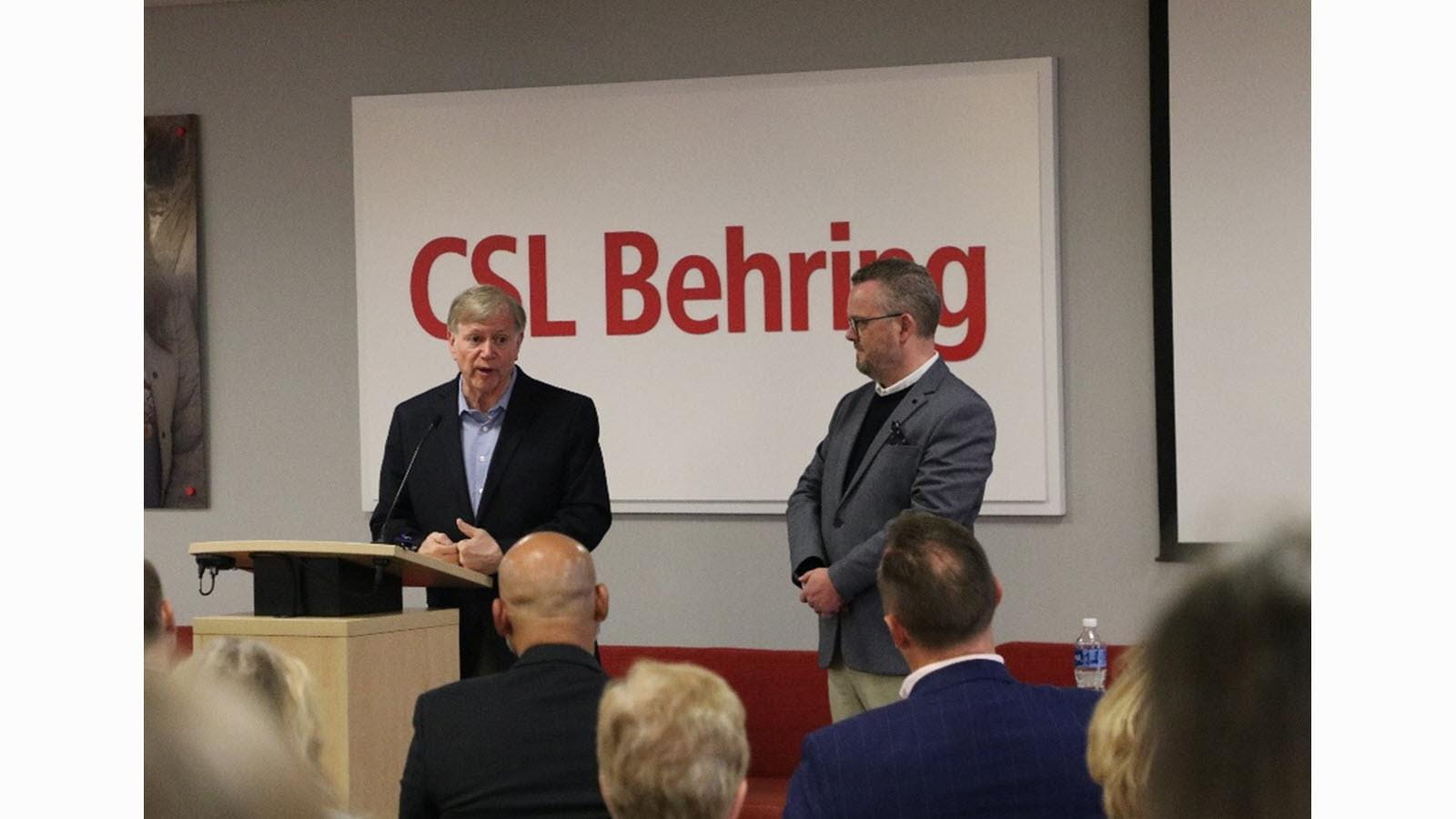Hereditary angioedema (HAE) is a rare, genetic condition that causes potentially life-threatening attacks of severe swelling in various parts of the body, including the hands, feet, stomach, face and throat.
Recognition of the condition evolved much like many other rare diseases – slowly. Discovered in 1888, it wasn’t until the World War II era when scientists made breakthroughs in understanding why it occurs. HAE patients are lacking an enzyme called C1 esterase inhibitor (C1-INH). It would take until 1979 for a treatment to become available. In the decades that followed, patients have had better access to more treatments.
Anthony Castaldo, who recently visited CSL in King of Prussia, Pennsylvania, is an HAE patient himself and leads HAE advocacy organizations in both the United States and internationally. CSL Behring, a business unit of CSL, makes medicines for rare and chronic illnesses, including HAE.
Castaldo said he remembers when the condition was less known and understood, when patients were less likely to be diagnosed and treated. The repercussions could be fatal or lead to a patient needing a permanent tracheostomy – a surgically installed airway to help with breathing due to a swelling attack.
While Castaldo dodged the most severe impacts, his daughter experienced off-the-chart symptoms by her preteen years, he told CSL employees at a town hall meeting.
“I realized we had to do something,” Castaldo said. “And if you have a 12-year-old kid who looks you in the eye, sullen, sunken, can't go to school, psychologically damaged by the fact that she can't control this condition, who says, ‘Dad, I really don't know if I have the will to live,’… that was enough to motivate me.”
So, Castaldo began his fight for treatments that would benefit his daughter and other patients like her. He went to the National Medical Library, studied the condition, researched medicines, and started creating national and international networks in collaboration with Henrik Boysen, who visited CSL alongside Castaldo last week. Today, Castaldo is CEO and Chairman of the Board of HAE International (HAEi) and of the U.S. Hereditary Angioedema Association (HAEA). Boysen is President and Board Member of HAEi/HAEA.
Today’s medicines save lives, Castaldo said. His daughter went on to graduate from college and is now a mother of three children.
But they aren’t done yet, Boysen said.
Now that the treatment landscape and access has improved, especially in the U.S., Boysen says he wants to replicate that around the globe using HAE International. The goal? To address the unmet need wherever it exists, starting with education for health care providers.
“Imagine you have the first symptom; it takes you 20 years before you get a diagnosis. That’s terrible. But It's better today. Now it’s about nine, which is still way too long,” Boysen said. “Of course, that's why we do what we do globally from HAEI, but also here in the U.S. from HAEA. Education, education, education. That's really what it's all about.”



